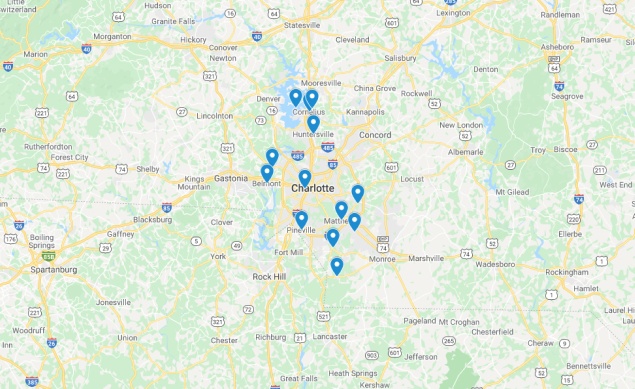The U.S. Food and Drug Administration (FDA) estimates that doctors perform over one million hernia repair operations each year. A hernia is a condition in which part of an organ or fatty tissue pokes through a weak spot in either muscle or the surrounding connective tissue. For many of these repairs, surgeons use hernia mesh implants instead of sutures alone. Surgeons place the mesh over the weak spot to provide support and prevent the hernia from happening again.
A 2016 study found that about one third of hernia repair patients (many of whom were mesh implants) needed another surgery within five years to repair the hernia again due to failure or to reverse a hernia mesh complication.
Covidien, Inc., a subsidiary of Medtronic, Inc. manufactures several hernia mesh products that are now the subject of personal injury lawsuits.
Covidien Parietex Lawsuits
The parietex line of Covidien mesh implants first entered the marketplace in 1999. Most hernia mesh implants are made from polypropylene. Polypropylene implanted in the human body can cause infection, inflammation of internal organs, and re-hernias.
Covidien doesn’t use polypropylene because of those side effects. Instead, Covidien uses polyester fiber with a hooked composition in its mesh products. The hooked composition was supposed to prevent tearing, but it can also cause severe internal injuries, including the body’s inflammatory response. Hernia mesh products were approved by the FDA for use in patients prior to human trials to test for safety.
Mesh implants often create severe side effects, such as:
- Perforation
- Migration (parts breaking off and moving around the body)
- Infection
- Pain
- Bowel obstruction
- Scar-tissue adhesion
Plaintiffs have filed over a thousand cases against several manufacturers of surgical mesh for complications resulting from the implantations. Manufacturers have paid millions of dollars in damage awards or in settlements. Most of the cases were based on failure to warn physicians or patients about the risks involved in using mesh implants and for defective products.
For example, on February 16, 2019, Gary Northrup filed a personal injury lawsuit against Medtronic and Covidien in the U.S. District Court for the Central District of California. Northrup claims that he underwent laparoscopic surgery for a hernia repair that used Parietex Composite Mesh and Parietex Hydrophilic Anatomical Mesh.
Following the surgery, the plaintiff suffered severe side effects from the surgery, including pain, vomiting, and other complications. He visited the emergency room several times and endured several narcotic injections for pain until he finally underwent revision surgery in 2018 to remove the mesh implants. Adhesions were discovered during the surgery that led to the plaintiff’s claims that the product is defectively designed.
There are 12 lawsuits with respect to Covidien Mesh pending in nine federal district courts. In addition, there are at least 141 state court cases filed against Covidien for defective mesh products.
Covidien MDL Request
On June 5, 2020, Covidien asked the U.S. Judicial Panel on Multidistrict Litigation (JPML) to consolidate the Covidien cases, making the argument that the central theme of the cases makes it proper to consolidate them for purposes of pre-trial discovery. They asked the JPML to assign the Covidien MDL to the U.S. District Court for the Southern District of New York as MDL 2953.
On August 7, 2020, JPML denied the request to consolidate the Covidien cases. The panel stated that the small number of cases did not warrant disrupting the pending cases, especially noting that some cases have been pending for two or three years. In addition, the JPML was not convinced the number of Covidien cases will increase substantially.
The JPML also seemed unconcerned about the coordination of pre-trial issues since the plaintiffs in five actions share the same legal counsel and two others also share counsel. Having common counsel should facilitate coordination without the necessity to consolidate the cases. Therefore, at this juncture, the federal product liability cases related to the Covidien hernia mesh products will not combine into a single action for purposes of pre-trial discovery.
The JPML’s denial of coordination means that the plaintiffs’ counsel will face the demands of individual discovery requests and individual trials. The state court cases are particularly challenging for Covidien attorneys who may have difficulty settling the cases due to state statute of limitations tolling laws. Attorneys are currently in settlement negotiations, but there have been no settlements to date.
Going Forward
There are at least five multidistrict litigation (MDL) or multi-county litigation (MCL) mass torts related to the use of surgical mesh. One of the first to settle was related to the Kugel Mesh Hernia Patch. All 2700 litigants settled for $184 million, the largest settlement to date. Other MDL and MCL consolidated cases are awaiting bellwether trials because they are still in early litigation stages.
Covidien’s legal counsel did not request MDL consolidation because they faced 12 federal lawsuits. They were more concerned about the 141 state law claims against Covidien’s mesh implants and hoped the JPML would consolidate the cases given counsels’ expectation that the MDL class of cases would expand substantially. Consolidation would have made pre-trial discovery more efficient and allowed them to take advantage of the bellwether trials that tend to impact settlement discussions.
The JPML’s consolidation denial will likely affect future requests for MDL consolidation, especially where the federal cases are limited in number and where the mass tort cases are brought by several cooperating counsels.
Subscribe to our blog for more mass tort updates on hernia mesh and other litigations.







